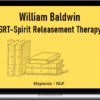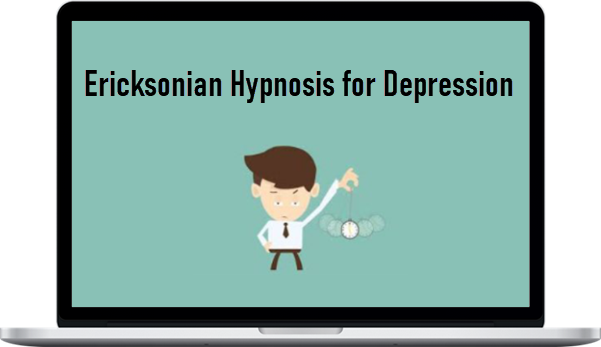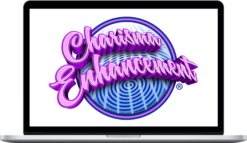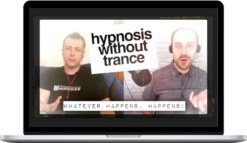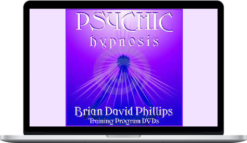Ericksonian Hypnosis for Depression
$79.00 $24.00
Total Sold: 1
»Instant Delivery
Description
Ericksonian Hypnosis for Depression
Make a difference with even your most severely depressed clients
- Get the “50,000 Foot View” of hypnotic treatment strategies so that you know what your client needs and how you can deliver it.
- Learn strategies that you can put to use immediately in your practice and life
- Expand your skills and your knowledge with the latest research on depression
- Learn how to add hypnotic strategies to your current treatment modality to improve your success rate
What You’ll Learn Inside Ericksonian Hypnosis For Depression
Michael Yapko
Treating Depression Hypnotically and Strategically: The Power of Experiential Learning in Teaching Mood Regulation Skills
- How hypnosis can both increase your client’s responsiveness and enhance the efficacy and power of your interventions.
- To identify specific cognitive patterns that influence treatment responsiveness so that you can employ hypnotic strategies to enhance their value as catalysts
- How hypnosis can be used as a means of encouraging behavioral activation. Regardless of your theoretical model, the research shows us that we need to get our clients acting and trying on new behaviors. Hypnosis can help you do that.
Bill O’Hanlon
Out of the Blue: Six non-medication ways to relieve depression
- Specify why depression is like a bad trance and how to change the trance to a more positive one.
- Discover and use many non-drug interventions you can use to break the bad trance of depression and help your clients heal while drastically reducing relapse rates
- Talk about why brain plasticity has both a good and bad aspect for people who are depressed. This will help you in your interventions and to build rapport with your clients.
- Carolyn Daitch
- Getting Your Life Back: Healing Depression with Hypnosis
- Articulate the rationale for the use of hypnotherapeutic techniques as an adjunct in the treatment of depression (for you, your clients and any organization where you need to justify your treatment protocol)
- Identify and implement several interventions that can help your clients diminish feelings of hopelessness associated with depression, including a demonstration of two short, powerful trances call “fast forward” and “the wise self.”
- Identify and implement two interventions (transcripts provided) that can help access strong parts of self that can manage more vulnerable parts.
Steve Andreas
The Many Faces of Loss, and How to Resolve It.
- How to elicit the internal mental structure of Grief in response to a loss (loss of a person, desired futures and other commonly encountered losses).
- How to elicit the internal mental structure of a loss that is experienced as a positive resourceful present felt experience.
- How to transform the experience of grief into a positive resourceful present “felt experience” to help your clients rapidly transform their life.
Rob McNeilly
What Can Solution Hypnosis Contribute to The Treatment of Depression?
- How you can discover the specific experiences that each of your clients needs to heal from depression.
- Clarify what might be missing for each individual leading to a more respectful and more rapid resolution of their depression
- Use ericksonian strategies for connect people to their experiential resources so that they can more easily change their behaviors and engage in enjoyable life activities.
- How to avoid therapy burnout and make sure that you do not “catch” depression.
Lynn Johnson
Altered States: Why Hypnosis Helps Depression
- Learn, experience and use a simple form of self-hypnosis to speed recovery from depression and is also useful for chronic pain and many other issues.
- How inflammation plays a role in triggering depression and how self-hypnosis reduces it.
- How understanding inflammation explains the positive results from meditation and self-hypnosis.
More courses from the same author: Ericksonian
Delivery Policy
When will I receive my course?
You will receive a link to download your course immediately or within 1 to 21 days. It depends on the product you buy, so please read the short description of the product carefully before making a purchase.
How is my course delivered?
We share courses through Google Drive, so once your order is complete, you'll receive an invitation to view the course in your email.
To avoid any delay in delivery, please provide a Google mail and enter your email address correctly in the Checkout Page.
In case you submit a wrong email address, please contact us to resend the course to the correct email.
How do I check status of my order?
Please log in to HealingCourse account then go to Order Page. You will find all your orders includes number, date, status and total price.
If the status is Processing: Your course is being uploaded. Please be patient and wait for us to complete your order. If your order has multiple courses and one of them has not been updated with the download link, the status of the order is also Processing.
If the status is Completed: Your course is ready for immediate download. Click "VIEW" to view details and download the course.
Where can I find my course?
Once your order is complete, a link to download the course will automatically be sent to your email.
You can also get the download link by logging into your HealingCourse account then going to Downloads Page.
Related products
Total sold: 12
